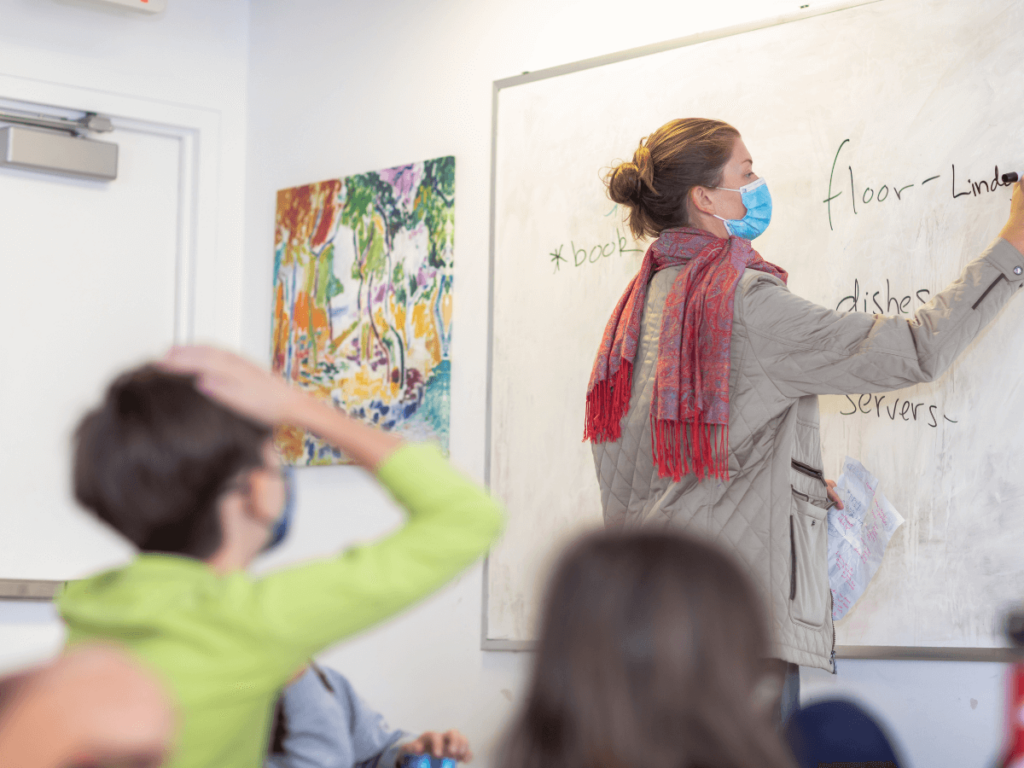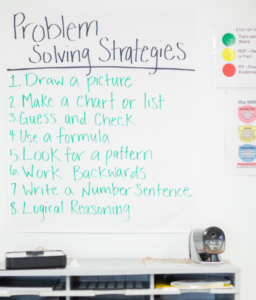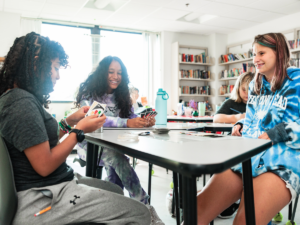Exploring Executive Functioning Skills & Parent Tips

Executive functioning skills are all the skills needed to engage in goal-directed behavior, such as planning a vacation or organizing a birthday party. We use them every day, throughout the day. Many people think of it as organizational skills, but it’s much more. Executive functioning skills also help us with emotional regulation.
The Three Categories of Executive Functioning Skills:
- Working Memory – the ability to hold information in one’s head in order to complete tasks.
- Cognitive Flexibility – the ability to shift attention in order to respond appropriately to different situations; it’s a prerequisite for flexibility and adaptability.
- Self-Control – the ability to manage and modulate one’s emotions and desires in potentially difficult situations; the ability to restrain impulses.
Executive Functioning is Situational
If we think about a student being given an assignment or an activity to do at school, we can describe several different executive functioning skills needed to complete this task successfully.
- Task initiation
- Sustained attention
- Focus (response inhibition)
- Emotional Control

The student first needs to select an approach and figure out how to start the activity. Once they have started, how do they sustain focus and motivation? If they have questions or get stuck, can they ask for help? Then, how do they know when they’re done and have satisfied the requirements?
Another area that requires various executive functioning skills is initiating and maintaining friendships. To navigate this endeavor successfully, our children need to know how to have a reciprocal conversation, compromise, consider different points of view, and display interest in others’ preferred activities or topics. This would require several executive functioning skills, such as:
- Self-awareness
- Perspective Taking
- Understanding Cause & Effect
- Respectfully Giving & Receiving Feedback
For many parents, the million-dollar question is, how do I support my child when they struggle to complete work, keep on top of day-to-day responsibilities independently, or sustain friendships?
How to Help Your Child Develop Executive Functioning Skills:
- Set boundaries and limits with your children – this makes your expectations clear and easier to follow. Consistent rules and guidelines help our children feel safe and foster internal control.
- Cultivate personal responsibility, accountability, and resiliency – teach your child how to be an independent adult by gradually increasing their household responsibilities. This is not a punishment but a gift. Your child should know how to cook, do laundry, clean a toilet, balance a checkbook, and grocery shop before adulthood.
- Monitor & Limit Electronics – do not let them keep electronics in their room at night. Have them charging outside their bedroom.
- Model the behavior you want to see in your children – your children watch you more closely than they listen to you.
- Create a family dynamic where mistakes are okay – this is how we learn.
How to Improve Specific Executive Functioning Skills:
Working Memory

Large White Board: Believe it or not, a large whiteboard works better than an electronic calendar for children who struggle with executive functioning skills. Have a large family whiteboard in a common area and keep it updated. Refer to it regularly.
Time Management: Children who struggle with executive functioning skills often dramatically over or underestimate the time it takes to do something. So, have them use a timer to see how long it takes to walk the dog, take out the trash, and fold the laundry. They are often surprised by how little time it takes to do a chore.
Conversely, these same children will guesstimate that they only need 30 minutes on a Sunday night to write their five-page report due the next day.
It helps to have them track their time and then refer to previous experiences. Eventually, they will learn that they need to start on that assignment BEFORE Sunday evening.
Picture Cards: A picture is worth 1,000 words. Pictures tell our children so much about what is expected. You can create picture cards of what it looks like to set the table, do the laundry, get ready for bed, and clean their room. Then, the child can refer to the cards versus you repeatedly reminding them.
Routines: Setting routines at home helps teens/tweens organize themselves and their stuff. You and your child can work together to develop a morning routine, homework routine, and shower routine. They can learn 1) what they need to be successful and 2) the time required for the task.
Bins: A front door bin is great for kids to put their stuff.
I Do, You Do, We Do: This is one of my favorite strategies that one of my veteran staff, Michelle, taught me. When introducing a new skill or task, first do the task with your child watching. Then, do the task with your child; finally, have your child do the task independently with you watching. It’s easy NOT to do these three steps, but they are essential in building a new skill.
Cognitive Flexibility
Opportunities for Social Skills Practice: Strong social skills require practice. Fortunately, life gives us countless opportunities to help our children improve their social skills. For example, can your teen/tween order independently when you go to a restaurant?
At dinner, practice reciprocal conversation. Active listening is a crucial skill. Prompt your child to ask YOU questions. Challenge your child to consider someone else’s point of view. Practice respectfully disagreeing and how to have a cordial debate. We can’t effectively support our own view if we don’t understand others’ points of view.
Black & White Thinking: Children who struggle with executive functioning skills often display black-and-white thinking. Our challenge is to show them the shades of gray. Many teens/tweens will get stuck and dig in their heels, becoming relatively rigid in their beliefs and way of seeing a situation. We want to plant seeds — help our kids open up their minds and consider something different. It might be verbalizing curiosity, making an observation, or proposing an alternative explanation or point of view. At first, your child may become defensive or reject our suggestion or option. That’s okay. We need to give them time to consider the possibilities. It can even become a game. Humor can be a great mediator when navigating tough topics. What if we played a game differently and changed the rules? Word games also promote cognitive flexibility.
Reflection: Establishing a culture of reflection in your family is a great way to model and practice various executive functioning skills, including self-awareness, problem-solving, adaptability, and perspective-taking. The idea is that after an activity, one reflects on what went well, what didn’t go well, and what they would do differently going forward.
Self-Control

Group Games: Family game nights can be fun and help build skills. Whether a card game or board game, these activities require players to take turns, manage their competitive spirit, and remain friendly regardless of whether they are winning or losing. Parents can model and prompt them on how to address these challenges.
Individual or Group Sports: Both individual sports, such as Karate or gymnastics, or group sports, such as soccer or ultimate frisbee, teach our children countless skills, including teamwork, maintaining our composure, pushing through challenges, managing frustration, and being a graceful winner or loser. They also learn how to get along with a variety of peers and different adults.
Remember Struggling with Executive Functioning is Normal!
Each of our children is on their own path and will develop at their own rate. A child may excel in one area while struggling in another. As an outside observer, you may feel like other kids are doing better or managing adolescence more smoothly than your child. Especially in this climate, there is a strong urge to compare our children with others. Try not to.
What people are living through is not reflected on social media. Many parents are silently struggling with some aspects of parenting their children. Instead, find your tribe who can support you. It could include a neighbor, social skills coach, family, guidance counselor, or minister. Don’t be afraid to get help and lean on your supporters. Many children struggle throughout middle and high school and go on to become successful, independent, and well-adjusted adults. Your children are lucky to have you supporting them. Give yourself some grace.
Posted in:
